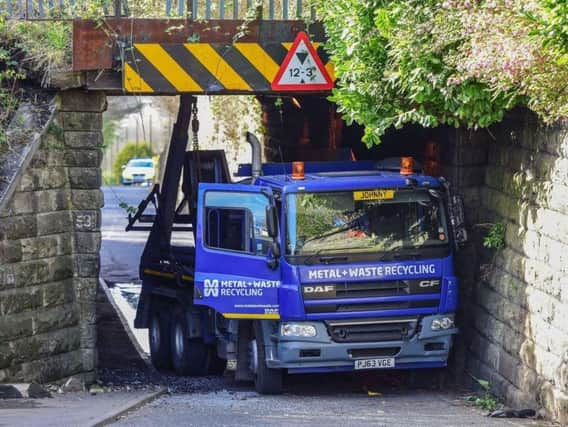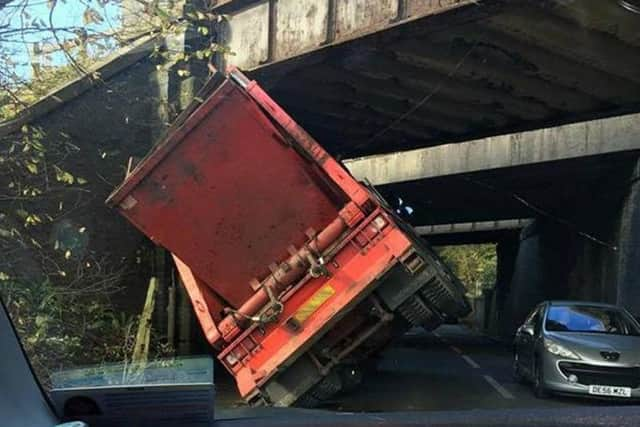Councils want new powers on ‘rogue’ lorries


A spate of such accidents has caused “havoc and mayhem” in towns and villages, blocking roads and often disrupting train services, officials said.
More than half of councils identified the problem of “bridge strikes” among the most pressing traffic issues in their communities, the Local Government Association said.
Advertisement
Hide AdAdvertisement
Hide AdBut authorities outside London do not currently have the power to fine drivers who ignore road restrictions.


The Association, which represents councils, said many incidents were caused by drivers being directed on to unsuitable routes by their satellite navigation systems.
Middlesbrough, where a 13ft bridge on Albert Road, under the railway station was struck four times in the space of a few weeks, was said to be among the towns worst affected. The incidents caused delays to trains across the region.
In one case, the canvas roof of a Dutch lorry was said to have been “peeled back like a tin of mackerel” as it reversed with deflated tyres from under the bridge.
Advertisement
Hide AdAdvertisement
Hide AdIn Hull last December, Stoneferry Road was been closed for much of a morning after a lorry became wedged underneath a bridge. Network Rail halted trains passing over it, and local bus services had to be diverted.
Aldwarke Lane in Rotherham was closed for nearly 48 hours in February after a lorry hit a bridge. It came only a few weeks after another HGV collision on the same road.
The A63 was closed in both directions last year after a lorry hit a footbridge near Brough.
And in Wakefield in April, a lorry ended up on its side after the driver attempted to drive under a bridge on Doncaster Road, between Ackworth and Badsworth.
Advertisement
Hide AdAdvertisement
Hide AdFurther afield, police in Somerset warned of HGV drivers exceeding weight limits, and in the Kent village of Goudhurst, lorries blocked the same road twice in two days in March.
Councils who want to enforce action are currently limited by law to organising “lorry watch” schemes and similar measures.
Martin Tett, at the Local Government Association, insisted that councils were “on the side of motorists” and were trying to tackle congestion, but he added that they “want to be able to do more”.
He said: “The spate of accidents we have seen involving lorries blocking streets, damaging local areas and crashing into bridges on an all too regular basis shows that action needs to be taken by Government in the upcoming spending round.”
Advertisement
Hide AdAdvertisement
Hide AdThe Road Haulage Association accused councils of trying to “generate revenue”.
Its chief executive, Richard Burnett, said: “It’s clear that this is all about raising cash. The LGA has gone out of its way to demonise truckers.”